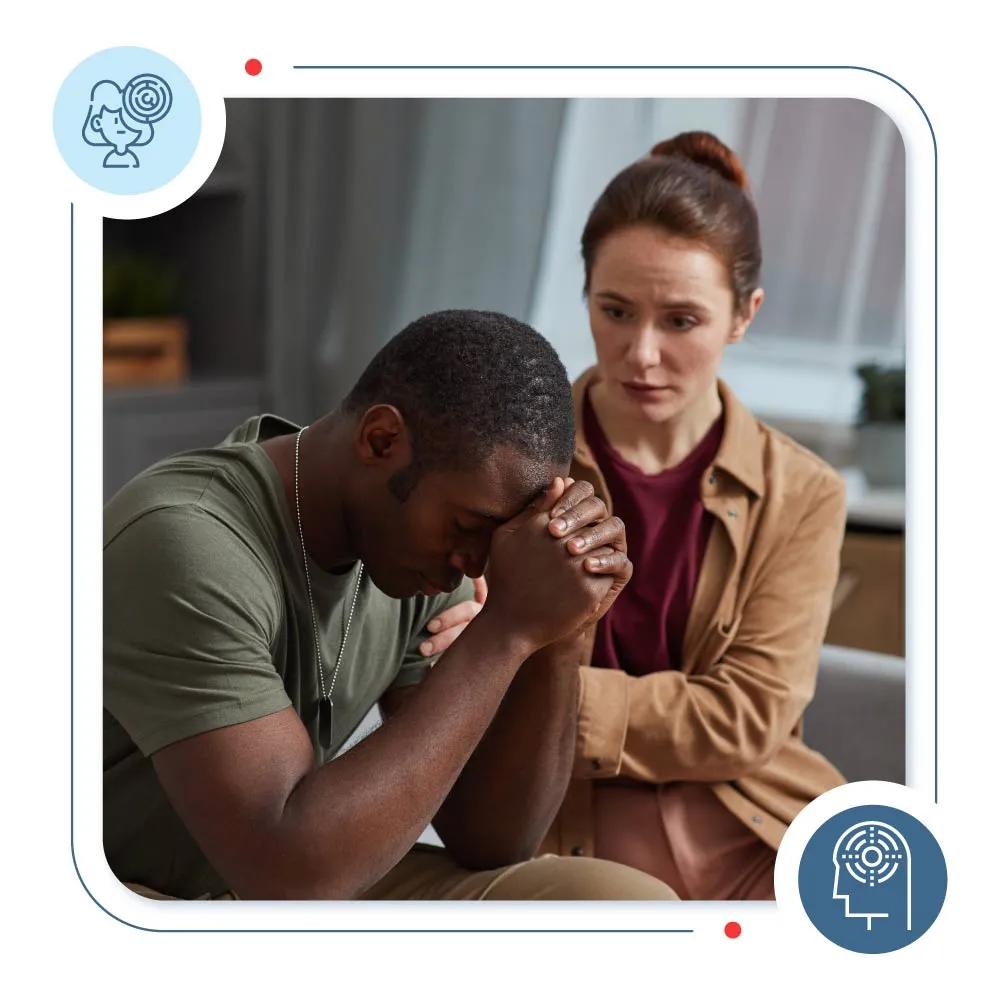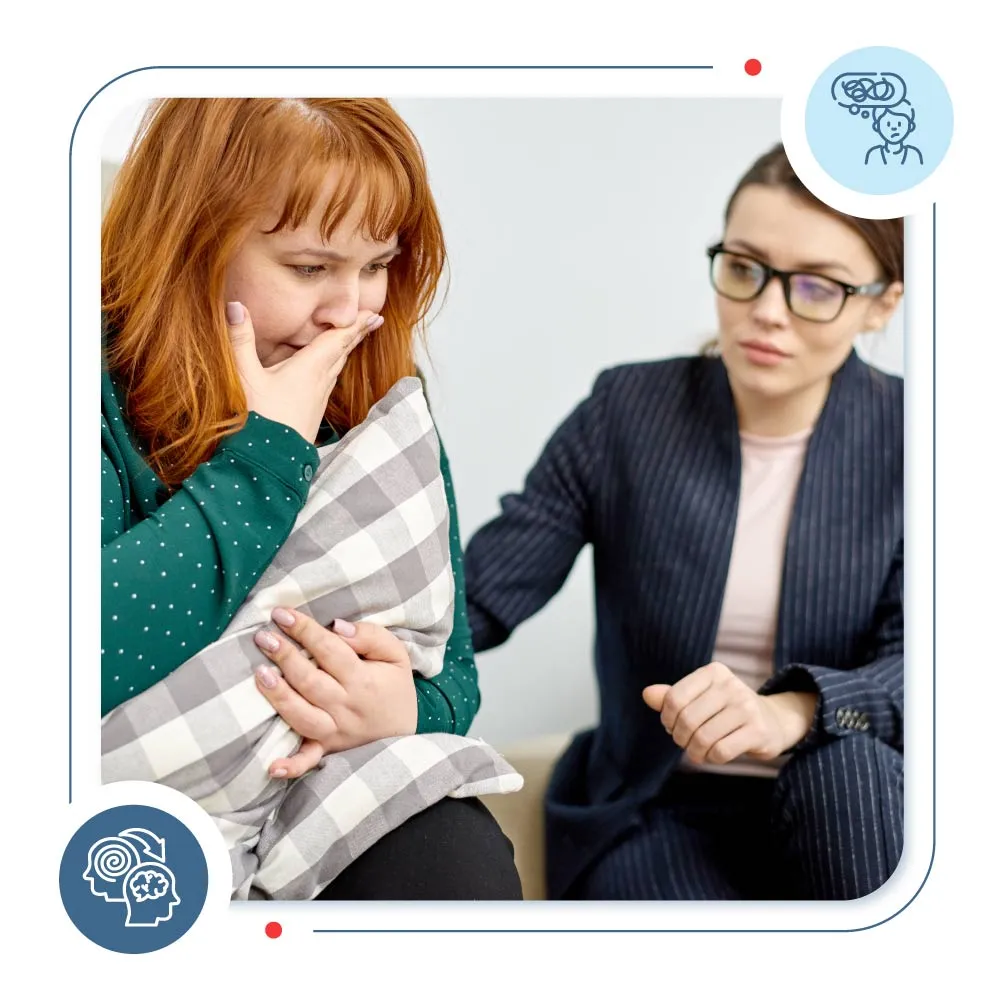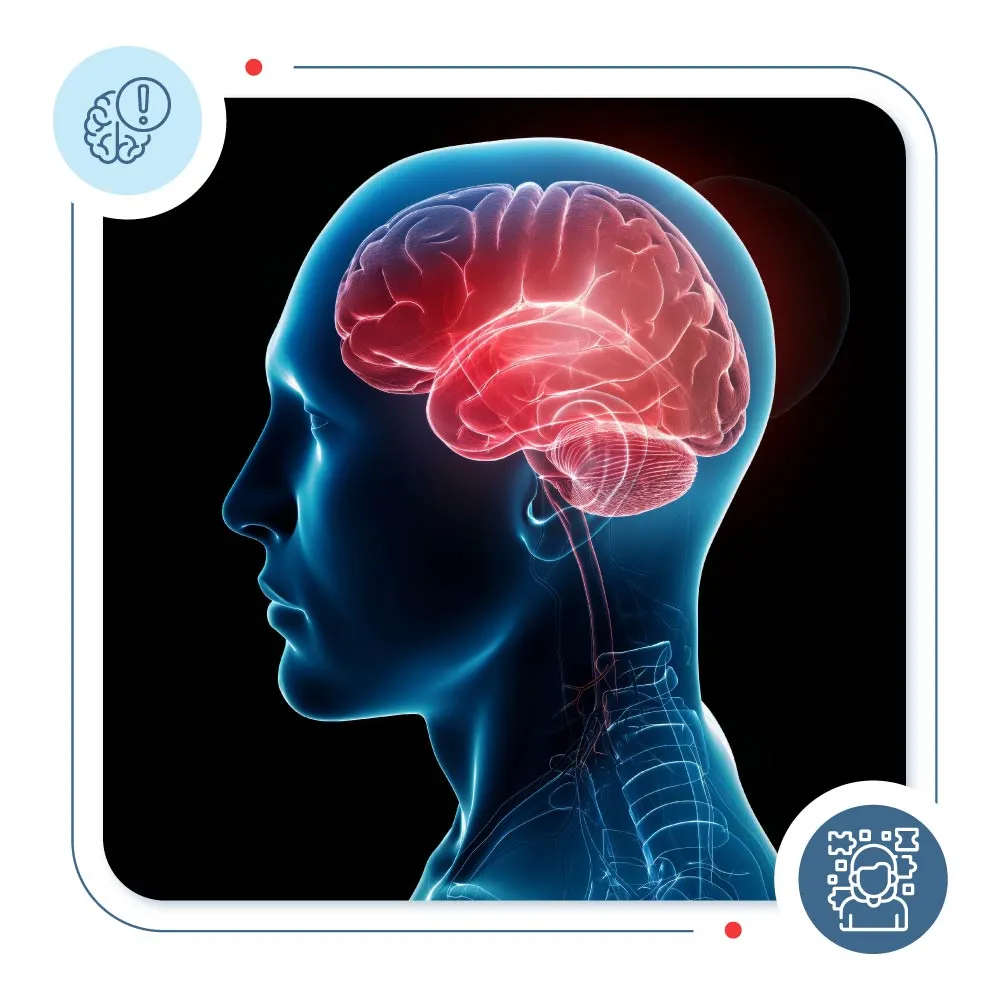Post-traumatic stress disorder (PTSD)

PTSD
Post-traumatic stress disorder (PTSD) is a severe post-traumatic stress disorder that takes place when a person goes through an extremely traumatic accident, either as a part of it or observing it. Most people who go through a traumatic event struggle to cope for a little while. But if these struggles get worse over time, last more than a month, and start affecting your daily life or work, it could be PTSD. The good news is, with the right care and support, you can start to feel better.
Whether you just returned from military service or have been home for a decade, getting help for PTSD (post-traumatic stress disorder) is never too late. Getting the diagnosis and PTSD treatment can help you cope with your PTSD symptoms and stop them from getting worse.
At Mid Cities Psychiatry, our team of psychologists, psychiatrists, and mental health counselors offers the best PTSD diagnoses and treatment plans.
Call us or schedule an appointment to explore how to access our PTSD treatment in Euless, Texas.

Symptoms of PTSD
After experiencing a traumatic event, some people may notice PTSD symptoms within about three months. However, in some cases, symptoms might not appear until a year later. The PTSD symptoms are up to 4 months, but it severely impacts social and professional life as well as the ability to perform daily tasks. In general, PTSD symptoms are categorized into four types: negative changes in moods and thoughts, disturbing memories, avoidance, emotional reactions, and physical changes. PTSD symptoms vary from person to person and change over time.
- Negative Changes in Moods and Thoughts: Emotionally numb, emotions of guilt, fear, blame, shame, and anger, and feeling isolated from surroundings.
- Disturbing Memories: Flashbacks of traumatic events, upsetting dreams or nightmares, and severe emotional distress, taking you back to the traumatic event.
- Avoidance: Practicing not to remember the past traumatic event and keeping yourself away from those places that remind you of the traumatic event.
- Emotional Reactions and Physical Changes: Emotional symptoms such as trouble focusing, always alert to danger, disturbed sleep, aggressive behavior, while PTSD physical symptoms like rapid breathing, shaking, sweating, fast heartbeat, and self-harming actions such as driving too fast or drinking too much.



Causes of PTSD
PTSD may form after a person has gone through exceptionally frightening, stressful, or traumatic experiences. Here are some experiences that can potentially result in PTSD:
- Physical or sexual assault
- Shocking childbirth experiences, such as losing a baby
- Abuse, such as childhood or domestic abuse
- Severe health issues, such as intensive care or being admitted
- Experience traumatic events at work, including workplace violence, consistently high pressure, or harassment
- War and conflict
- Serious accidents
- Physical or mental torture
- The death of someone close to you
And much more that can be shocking and traumatizing, such as a child missing, kidnapping, financial distress, and extreme racism.

Types of PTSD
Acute Stress Disorder
A short-term mental disorder that can happen immediately after you experience a traumatic event, particularly at home, for months. If this type of severe PTSD symptom lasts longer than a month, then you may fulfill the PTSD criteria.
Complex PTSD
A mental health disorder that takes place when you experience long-term or chronic traumatic events. The long-term effects of PTSD include domestic violence, war, and child sexual and physical abuse. Apart from these long-term sufferings, people with CPTSD also deal with issues in managing their relationship and their emotions.
FAQs
01
What is the outlook for PTSD?
02
Can PTSD be prevented?
You can’t prevent trauma, but steps like talking to loved ones, joining support groups, finding healthy coping strategies, and helping others can reduce the chances of developing PTSD.
03
How is PTSD diagnosed?
There’s no specific test to get diagnosed. A healthcare provider will ask about your symptoms, trauma, and mental health history. They’ll use the DSM-5-TR criteria, which require certain symptoms lasting at least one month, including:
- 1 avoidance symptom.
- 1 intrusion symptom.
- 2 arousal symptoms.
- 2 moods and thinking symptoms.
Also, a physical exam or tests may be done to rule out other conditions.
04
How is PTSD treated?
PTSD is mainly treated with therapy, especially cognitive behavioral therapy (CBT) is a type of talk therapy that helps manage mental health disorders. Other effective approaches include:
- Eye Movement Desensitization and Reprocessing (EMDR): Combines eye movements with processing traumatic memories.
- Trauma-Focused Cognitive Behavioral Therapy (TF-CBT): Teaches coping and reframes negative thoughts.
- Group Therapy: Share experiences with others who faced similar events.
- Prolonged Exposure Therapy: Gradual exposure to trauma-related triggers.
05
What medications help with PTSD?
The FDA has recently approved SSRIs (selective serotonin reuptake inhibitors) for the treatment of PTSD. healthcare providers prescribe help with symptoms by prescribing anti-anxiety and antidepressant medications like SSRIs or SNRIs.
Real Stories, Real Recovery





We provide a comprehensive care provision for the most common mental issues people struggle with, such as PTSD, ADHD, OCD, anxiety, depression, sleep disorder, schizophrenia, and numerous other mental health conditions.





